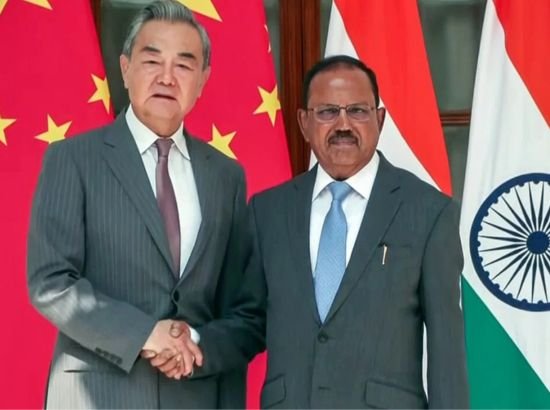
New Delhi | August 20, 2025 — In a major diplomatic breakthrough, India and China have agreed to restore direct flights, revive cross-border trade, and pursue measures for peace along their disputed frontier. The understanding was reached during talks between Chinese Foreign Minister Wang Yi and his Indian counterpart S. Jaishankar in New Delhi on Tuesday, just weeks before Prime Minister Narendra Modi’s scheduled visit to China.
The agreements mark a significant easing of tensions between the two Asian giants, whose ties had soured after the deadly border clashes of 2020. Against the backdrop of global uncertainty triggered by U.S. President Donald Trump’s unpredictable foreign policy, both sides appear to be carefully recalibrating their relations through a series of high-level bilateral engagements.
India and China have decided to restart direct passenger flights, suspended since the outbreak of the COVID-19 pandemic in 2020. While no date has been fixed, both governments confirmed that resumption is on the cards. They also agreed to streamline visa processes for tourists, business professionals, media representatives, and other categories of travelers to enhance people-to-people contact.
The foreign ministries announced that the two sides will reopen cross-border trade through Lipulekh Pass, Shipki La Pass, and Nathu La Pass, long-established trading points. They also pledged to adopt practical measures to smoothen trade and investment flows between the countries.
Discussions also covered troop withdrawals from forward positions along the Himalayan border, boundary delineation, and related security issues. According to a Chinese foreign ministry statement, India and China have agreed to set up a working group for consultation and coordination on border matters, covering the eastern and central sectors. A fresh round of talks on the western sector will be held “at the earliest opportunity.”
Jaishankar raised India’s concerns about China’s construction of massive dams on the Yarlung Zangbo River in Tibet, which becomes the Brahmaputra after entering India and Bangladesh. New Delhi fears the dams could have severe downstream impacts. In response, Beijing agreed to share emergency hydrological data with India to improve transparency on river management.
Both countries have committed to continue this dialogue, with the next high-level meeting scheduled to take place in China in 2026. After his meeting with Wang Yi, Prime Minister Modi posted on X:
“Stable, predictable, and constructive relations between India and China will significantly contribute to regional and global peace and prosperity.”
PM Modi is expected to travel to China later this month to attend the Shanghai Cooperation Organisation (SCO) Summit, marking his first visit to the country in more than seven years.